When it comes to importing goods from China to Singapore, understanding the various shipping options is essential for making informed decisions that align with your business needs. With choices ranging from air freight and sea freight to express delivery services, each method presents unique advantages and considerations regarding cost, speed, and convenience. This overview aims to equip you with the knowledge to navigate the complexities of international shipping, helping you identify the best solutions for your logistics strategy. Whether your priority is quick delivery or cost efficiency, being well-informed will ensure a smooth import process and contribute to your overall success in global trade.
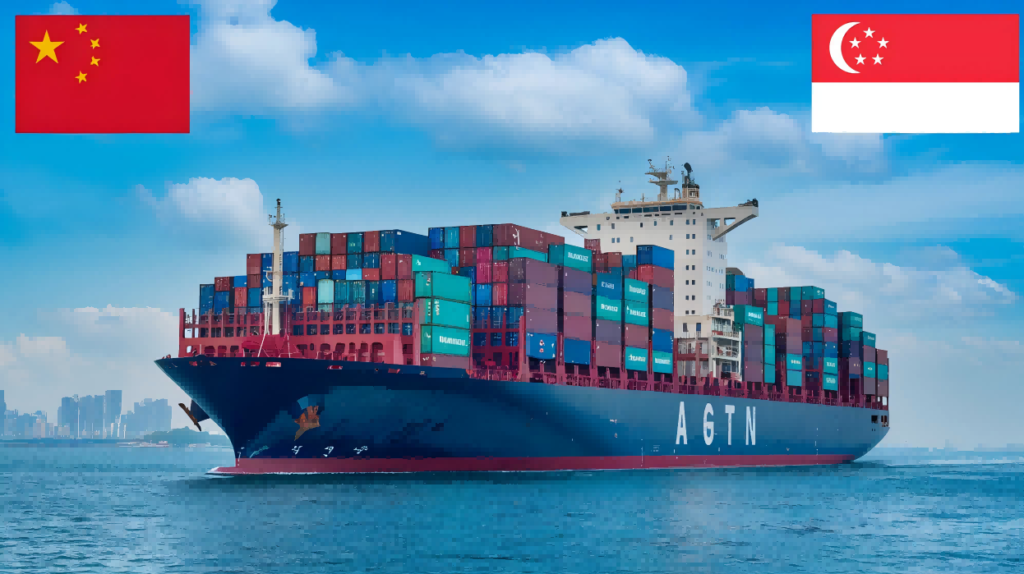
Overview of Shipping Options from China to Singapore
When importing goods from China to Singapore, understanding the available shipping options is crucial for making informed decisions that align with your business goals. The primary shipping methods include air freight, sea freight, and various express delivery services. Each option comes with its pros and cons, catering to different needs based on cost, speed, and convenience.
Air Freight vs Sea Freight
Air freight is often favored for its speed, making it the ideal choice for businesses that prioritize quick delivery. Typically, air freight can deliver goods from China to Singapore within 1 to 3 days, depending on the airline and specific logistics involved. However, it tends to be more expensive compared to sea freight, which can take anywhere from 7 to 14 days.
Comparison Table: Air Freight vs Sea Freight
| Feature | Air Freight | Sea Freight |
|---|---|---|
| Transit Time | 1-3 days | 7-14 days |
| Cost per Kg | Higher (typically 3x-5x sea freight) | Lower |
| Ideal for | Urgent shipments and high-value goods | Bulk shipments and lower-value goods |
| Capacity | Limited (typically up to 150kg) | High (container load) |
| Tracking Availability | Real-time | Limited |
Sea freight provides a cost-effective solution for larger shipments and is commonly used for bulk imports. While it is slower, it is suitable for items that do not require immediate delivery. The choice between these two shipping methods often boils down to balancing cost against urgency.
Express Delivery Services
Express delivery services offer an expedited solution for urgent shipments. Companies like DHL, FedEx, and UPS provide door-to-door services that ensure quick delivery, typically within 1 to 5 days. These services are particularly beneficial for small parcels or shipments that require swift action, such as samples or last-minute orders.
Key Features of Express Delivery
- Speed: Fast processing and transit times.
- Convenience: Door-to-door delivery, eliminating the need for additional logistics.
- Tracking: Real-time tracking capabilities.
- Flexibility: Options for weekend or holiday deliveries.
Door-to-Door Shipping
Door-to-door shipping services offer an all-in-one solution that encompasses the entire logistics process, from the seller’s location in China to the recipient’s address in Singapore. This service is particularly beneficial for businesses that may not have the expertise or resources to manage logistics themselves.
Advantages of Door-to-Door Shipping
- Simplicity: Reduces complexity in managing multiple logistics providers.
- Customs Clearance: Often includes customs clearance services, which can save time and hassle.
- Cost Transparency: Transparent pricing structures with fewer hidden fees.
- Insurance Options: Many door-to-door services provide insurance for added protection.
Dantful International Logistics specializes in providing door-to-door shipping from China to Singapore, ensuring a seamless experience for businesses looking to streamline their import processes.
You may be interested in the following related articles:
- How to Find the Cheapest Shipping Company from China to Malaysia
- Cheapest Shipping Company from China to Israel: What You Need to Know
- Step-by-Step Process of Door to Door Shipping from China to Israel
- How to Find the Cheapest Shipping Company from China to Australia
- Cheapest Shipping Company from China to Saudi Arabia: What You Need to Know
- The Ultimate Guide to Door to Door Shipping from China to Yemen
Factors to Consider When Choosing a Shipping Company
Selecting the right shipping company can make a significant difference in the efficiency and cost-effectiveness of your shipping process. Here are crucial factors to consider:
Shipping Costs and Rates
Understanding the shipping costs associated with air freight, sea freight, and express delivery services is essential for budgeting. Shipping rates can vary based on cargo weight, dimensions, and selected services. Utilizing a freight forwarder like Dantful can help you navigate and compare these costs effectively.
Transit Times
Transit times should align with your business needs. If your goods are time-sensitive, air freight or express delivery may be the best options. Conversely, if you can afford to wait and your shipment is large, sea freight could be a more economical choice.
Reliability and On-Time Delivery
Reliability is paramount when choosing a shipping partner. A company with a proven track record for on-time delivery minimizes disruptions in your supply chain. Review customer testimonials and performance metrics to assess reliability.
Insurance and Damage Protection
Shipping goods internationally comes with inherent risks. Evaluate the insurance options offered by the shipping company to protect against potential damage or loss during transit. Dantful provides comprehensive insurance services to safeguard your shipments.
Customer Service and Support
Effective customer service is essential for addressing concerns and ensuring smooth communication throughout the shipping process. Look for companies that provide 24/7 support and can promptly resolve any issues that may arise.
By carefully considering these factors and options, businesses can optimize their shipping strategies from China to Singapore, ensuring cost-effective and timely delivery of goods. For a hassle-free experience, consider partnering with Dantful International Logistics, known for its professional, cost-effective, and high-quality services tailored for global traders.
Dantful International Logistics Services:
- Dantful Ocean Freight Services
- Air Freight From China
- Amazon FBA Freight Forwarding
- WAREHOUSE Services
- One-Stop Customs Clearance Solution
- Cargo Insurance Services in China
- DDP Shipping Services By Dantful Logistics
- Out of Gauge Cargo Transportation Shipping Services
Top International Freight Forwarders for China to Singapore Shipping
Selecting a reliable international freight forwarder is crucial for ensuring smooth logistics when importing goods from China to Singapore. The following companies are among the top freight forwarders known for their efficiency, reliability, and extensive network.
DHL
DHL is a global leader in shipping and logistics, offering comprehensive express delivery services. With a strong presence in both China and Singapore, DHL provides fast transit times and reliable service. Their extensive network ensures that shipments are processed quickly, and they offer a range of shipping options tailored to different needs.
Key Features of DHL:
- Fast and reliable express shipping
- Extensive tracking system with real-time updates
- Strong customer support available 24/7
FedEx
FedEx is renowned for its express shipping capabilities, making it a popular choice for businesses needing fast delivery. With a wide range of services, including international priority and economy shipping, FedEx caters to various shipping needs while providing excellent customer support and tracking features.
Key Features of FedEx:
- Multiple shipping options for flexibility
- Comprehensive customs clearance services
- User-friendly online tracking system
UPS
UPS is another major player in the international shipping industry, offering a vast service network that includes air freight, ocean freight, and ground shipping. Their strong focus on technology and logistics solutions enables them to efficiently handle shipments and provide real-time updates.
Key Features of UPS:
- Comprehensive logistics and supply chain services
- Reliable customs clearance assistance
- Advanced tracking technology for shipment visibility
Aramex
Aramex is known for its robust logistics solutions tailored to businesses in the Asia-Pacific region. With a focus on e-commerce and retail, Aramex provides a variety of shipping options, including express and freight services, catering specifically to the needs of businesses engaging in international trade.
Key Features of Aramex:
- Customized logistics solutions for e-commerce
- Reliable international shipping services
- Strong presence in Asia, with efficient routes to Singapore
DB Schenker
DB Schenker is a global leader that provides diverse transportation and logistics services, including air and sea freight. Their extensive network and expertise in supply chain management make them an excellent choice for businesses looking for comprehensive freight solutions from China to Singapore.
Key Features of DB Schenker:
- Integrated logistics and supply chain services
- Strong focus on sustainability and efficiency
- Expertise in handling complex shipments and customs regulations
Advantages of Using an International Freight Forwarder
Utilizing an international freight forwarder offers significant advantages for businesses shipping from China to Singapore. By leveraging their expertise and resources, businesses can enhance their shipping processes and ensure smooth operations.
Expertise in International Shipping Regulations
International freight forwarders possess extensive knowledge of shipping regulations, tariffs, and documentation requirements specific to different countries. This expertise minimizes the chances of compliance issues and ensures that shipments adhere to legal requirements, which is vital for preventing costly delays.
Customs Clearance Assistance
Navigating customs can be a complex and time-consuming process. A reputable international freight forwarder provides customs clearance assistance, ensuring that all necessary documentation is completed accurately and submitted on time. This support streamlines the process, allowing businesses to avoid potential fines and delays.
Tracking and Status Updates
Freight forwarders offer advanced tracking and status updates for shipments, providing businesses with visibility throughout the shipping process. This feature enables companies to monitor their shipments in real-time, ensuring that they can proactively address any issues that may arise during transit.
Single Point of Contact
Working with an international freight forwarder provides the advantage of having a single point of contact for all logistics needs. This simplification enhances communication, as businesses can easily reach out to their freight forwarder for information, support, or updates, ultimately improving efficiency and collaboration.
Choosing to partner with a freight forwarder, like Dantful International Logistics, can significantly enhance the shipping process, offering expert support and streamlined operations for businesses importing goods from China to Singapore. Dantful specializes in providing comprehensive logistics services, ensuring a smooth and professional experience tailored to global traders’ needs.
Read More:
- Shipping From China to the United States
- Shipping From China TO CANADA
- Shipping From China To Netherlands
- Shipping From China To UNITED KINGDOM
- Shipping From China To ALGERIA
- Shipping from China to UAE
- Shipping from China to Saudi Arabia
Local Chinese Shipping Companies for Singapore
For businesses looking to import goods from China to Singapore, collaborating with local shipping companies can offer several advantages. These companies often cater to the specific needs of businesses operating in the region, providing tailored solutions at competitive prices.
Lower Costs than International Providers
One of the most compelling reasons to consider local Chinese shipping companies is the cost efficiency they can provide. Often, local companies have lower overhead costs compared to international freight forwarders, allowing them to offer more competitive rates. This can result in significant savings for businesses, especially for bulk shipments or frequent imports.
Cost Comparison Table: Local vs International Shipping Rates
| Provider Type | Estimated Cost per Kg | Typical Delivery Time |
|---|---|---|
| Local Chinese Company | $2.00 – $4.00 | 5-10 days |
| International Provider | $5.00 – $8.00 | 1-7 days |
Utilizing local shipping companies can help businesses maintain their profit margins while ensuring timely deliveries.
Chinese Language Support
Local Chinese shipping companies often provide Chinese language support, which can greatly facilitate communication. This is particularly beneficial for non-Chinese speaking businesses navigating logistics, customs, and shipping processes. Clear communication can help avoid misunderstandings, ensuring that all details regarding shipments are accurately conveyed.
Advantages of Language Support:
- Improved Communication: Reduced chances of miscommunication regarding shipping instructions or requirements.
- Cultural Understanding: Greater awareness of local practices and nuances in shipping.
- Personalized Service: Enhanced customer service tailored to local clients’ needs.
Knowledge of Local Shipping Conditions
Local shipping companies possess valuable insights into local shipping conditions and regulations. Their understanding of the unique challenges and opportunities in the Chinese logistics environment allows them to provide tailored solutions that international companies may not be aware of.
Benefits of Local Knowledge:
- Efficient Routing: Local companies can optimize shipping routes based on real-time conditions, ensuring quick and reliable deliveries.
- Regulatory Compliance: Familiarity with local laws and regulations minimizes the risk of delays or penalties.
- Adaptability: Enhanced ability to respond to changing conditions, such as fluctuating fuel prices or new trade regulations.
This localized expertise can significantly enhance the overall shipping experience, making it smoother and more efficient.
Incoterms for China to Singapore Shipping
Understanding Incoterms (International Commercial Terms) is essential for businesses engaging in international trade, including shipping from China to Singapore. Incoterms define the responsibilities of buyers and sellers in international transactions, delineating aspects such as shipping costs, risk, and insurance.
EXW (Ex Works)
Ex Works (EXW) denotes the seller’s minimum responsibility. The seller makes the goods available at their premises, while the buyer assumes all costs and risks associated with transporting the goods to their final destination. This term places the maximum burden on the buyer.
Key Considerations:
- The buyer is responsible for all arrangements and costs from the seller’s location.
- This term is suitable for buyers with established shipping logistics.
FCA (Free Carrier)
Free Carrier (FCA) indicates that the seller delivers goods to a named place, usually a freight forwarder or transport hub. From this point, the buyer is responsible for all costs and risks. This term provides more flexibility than EXW.
Key Considerations:
- The seller is responsible for loading the goods onto the transport at the specified location.
- Recommended for shipments where the buyer wants to control the freight process.
CPT (Carriage Paid To)
Carriage Paid To (CPT) specifies that the seller pays for transportation to a designated location. However, the risk transfers to the buyer once the goods are handed over to the carrier. This term is beneficial for sellers who wish to manage transport logistics up to a certain point.
Key Considerations:
- The seller pays for freight, but the buyer assumes risk during transit.
- Useful for businesses that want to minimize logistics complexity but manage risks.
CIP (Carriage and Insurance Paid To)
Carriage and Insurance Paid To (CIP) is similar to CPT, with the added responsibility for the seller to insure the goods during transit. This term places more burden on the seller while providing added protection for the buyer.
Key Considerations:
- The seller must procure insurance for the goods while in transit.
- Ideal for buyers who prioritize minimizing risk during transportation.
Adopting the correct Incoterms is crucial for ensuring that both parties understand their obligations and mitigate risks in the shipping process. For companies importing goods from China to Singapore, being well-informed about these terms helps streamline logistics and avoid potential disputes.
You may be interested in the following related articles:
- Shipping From China To Vietnam
- Shipping From China To Thailand
- Shipping From China To South Korea
- Shipping From China To Philipines
- Shipping From China To Pakistan
- Shipping From China To Japan
- Shipping From China To Indonesia
- Shipping From China To Malaysia
Tips for Negotiating the Best Shipping Rates
Negotiating favorable shipping rates is essential for businesses importing goods from China to Singapore. As logistics costs can significantly impact overall expenses, implementing strategic approaches can enhance your bargaining power with shipping providers.
Get Quotes from Multiple Providers
One of the most effective strategies in negotiating shipping rates is to obtain quotes from multiple providers. By researching various shipping companies, you can compare rates, services, and delivery times, which provides leverage when discussing terms with your preferred provider.
Benefits of Gathering Multiple Quotes:
- Competitive Pricing: Having various quotes helps identify the best competitive rates.
- Better Understanding of Market Rates: Provides insight into industry pricing and trends.
- Enhanced Negotiation Strategy: Use quotes as leverage to negotiate lower rates with your preferred shipping company.
Provide Accurate Dimensions and Weights
When seeking quotes, it is crucial to provide accurate dimensions and weights of your shipments. Shipping rates are often calculated based on these metrics, and inaccuracies can lead to unexpected charges or delays.
Importance of Accuracy:
- Cost Efficiency: Accurate measurements ensure that you are charged the correct rate, avoiding overpayment.
- Avoid Surcharges: Prevents additional fees for incorrect weight or size declarations.
- Streamlined Processing: Facilitates quicker processing and acceptance of your shipment by the shipping provider.
Consider Shipping in Off-Peak Seasons
Shipping rates can fluctuate based on demand, with peak seasons often resulting in higher costs. Considering shipping in off-peak seasons can yield significant savings.
Advantages of Off-Peak Shipping:
- Lower Rates: Many shipping companies offer reduced rates during non-peak times.
- Increased Availability: Less competition for space on vessels or flights, resulting in better service options.
- Greater Flexibility: More availability of shipping options and scheduling.
Consolidate Shipments When Possible
When feasible, consolidating shipments can lead to reduced shipping costs. This practice involves combining multiple smaller shipments into one larger shipment, maximizing the use of shipping space and minimizing expenses.
Benefits of Shipment Consolidation:
- Cost Savings: Shipping in bulk typically lowers the per-unit cost.
- Efficiency: Reduces the frequency of shipments, leading to lower administrative and handling costs.
- Simplified Logistics: Fewer shipments mean less complexity in tracking and managing logistics.
Importance of Tracking and Insurance
Effective shipment tracking and insurance are critical components of a successful shipping strategy. They provide peace of mind and help guard against potential losses during transit.
Real-Time Shipment Tracking
Real-time shipment tracking allows businesses to monitor their shipments throughout the shipping process. Many reputable freight forwarders and shipping companies offer sophisticated tracking systems that provide updates at every stage of transportation.
Advantages of Real-Time Tracking:
- Visibility: Businesses can see the location and status of their goods, enabling proactive management.
- Improved Communication: Stakeholders can share accurate updates with customers, enhancing satisfaction.
- Issue Resolution: Quick identification of delays or issues allows for timely intervention.
Cargo Insurance Options
Investing in cargo insurance options is crucial for protecting against potential losses during transit. This insurance covers the value of goods in case of damage, loss, or theft during shipping.
Key Benefits of Cargo Insurance:
- Financial Protection: Safeguards your investment against unforeseen events.
- Peace of Mind: Knowing your goods are insured allows for better focus on business operations.
- Liability Coverage: Shifts the financial burden of damaged or lost goods from your business to the insurance provider.
Damage Claims Process
In the event of damage or loss, understanding the damage claims process is vital. Each shipping company and insurance provider has specific protocols for filing claims, which should be clearly understood by businesses.
Important Steps in the Damage Claims Process:
- Notify the Carrier: Report damage or loss to the carrier as soon as it is discovered.
- Document the Damage: Take photographs and gather evidence of the condition of the goods.
- Complete the Necessary Paperwork: Submit all required documentation promptly to facilitate the claims process.
- Follow Up: Regularly check the status of your claim to ensure timely processing.
By implementing these tips for negotiating shipping rates and understanding the importance of tracking and insurance, businesses can optimize their logistics processes, minimize risks, and enhance overall operational efficiency. For additional support and expertise in navigating these complexities, consider partnering with Dantful International Logistics, known for its comprehensive services tailored to global traders.
FAQs
1. What are the main shipping options available for transporting goods from China to Singapore?
The primary shipping options include air freight, sea freight, express delivery services, and door-to-door shipping. Each option offers unique advantages depending on the urgency, cost, and nature of the goods being shipped.
2. How do air freight and sea freight compare in terms of cost and transit time?
- Air Freight: Typically takes 1 to 3 days but is more expensive (3x-5x the cost of sea freight).
- Sea Freight: Takes longer (7 to 14 days) but is generally more cost-effective, especially for larger shipments.
3. What are express delivery services, and when should they be used?
Express delivery services (e.g., DHL, FedEx) are ideal for urgent shipments that require fast processing and delivery, usually within 1 to 5 days. They are particularly beneficial for small parcels or last-minute orders.
4. What is door-to-door shipping, and what are its advantages?
Door-to-door shipping involves a full logistics service that includes pickup from the seller’s location in China and delivery to the recipient’s address in Singapore. Advantages include reduced complexity, customs clearance assistance, transparent pricing, and available insurance options.
5. How can I determine the shipping costs for my goods?
Shipping costs depend on various factors, including cargo weight, dimensions, shipping method, and specific services selected. It is advisable to obtain quotes from multiple providers to compare rates effectively.
6. Why should I consider using an international freight forwarder?
An international freight forwarder, like Dantful International Logistics, provides expertise in shipping regulations, customs clearance assistance, tracking capabilities, and a single point of contact for all logistics needs, enhancing overall shipping efficiency.
7. What are Incoterms, and why are they important?
Incoterms (International Commercial Terms) define the responsibilities of buyers and sellers in international shipments, covering aspects like shipping costs, risks, and insurance. Understanding these terms is crucial for ensuring smooth logistics and avoiding disputes.
8. How can I negotiate the best shipping rates?
To negotiate favorable shipping rates, obtain quotes from multiple providers, provide accurate shipment dimensions and weights, consider shipping during off-peak seasons, and consolidate shipments when possible.
9. What are the benefits of real-time shipment tracking and cargo insurance?
Real-time tracking provides visibility throughout the shipping process, allowing businesses to proactively manage shipments. Cargo insurance protects against potential losses during transit, providing financial security and peace of mind.
10. What should I do in case of damage or loss during shipping?
In the event of damage or loss, notify the carrier immediately, document the damage, complete the necessary paperwork, and follow up on the claim status to ensure timely processing.

Young Chiu is a seasoned logistics expert with over 15 years of experience in international freight forwarding and supply chain management. As CEO of Dantful International Logistics, Young is dedicated to providing valuable insights and practical advice to businesses navigating the complexities of global shipping.





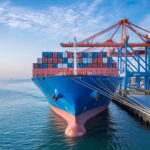

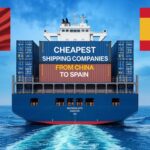




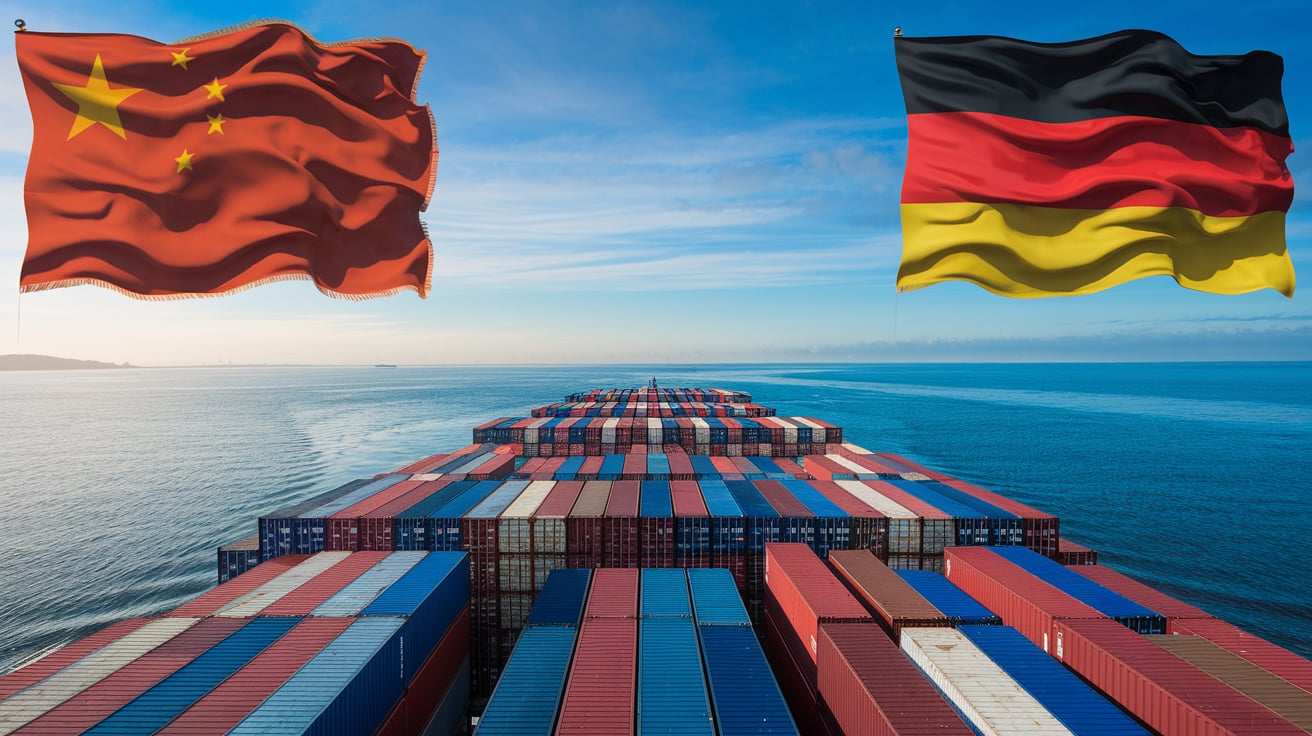
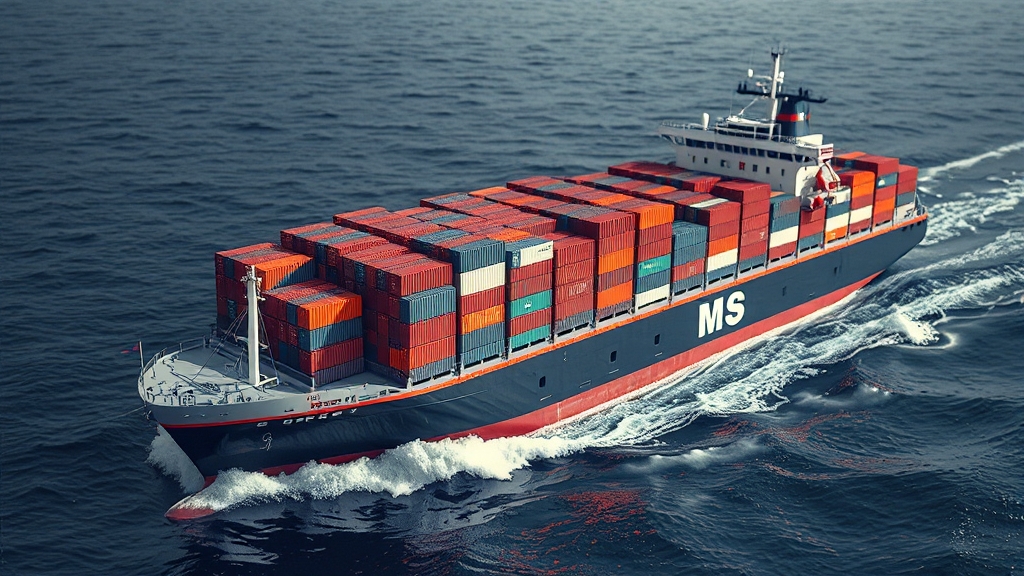
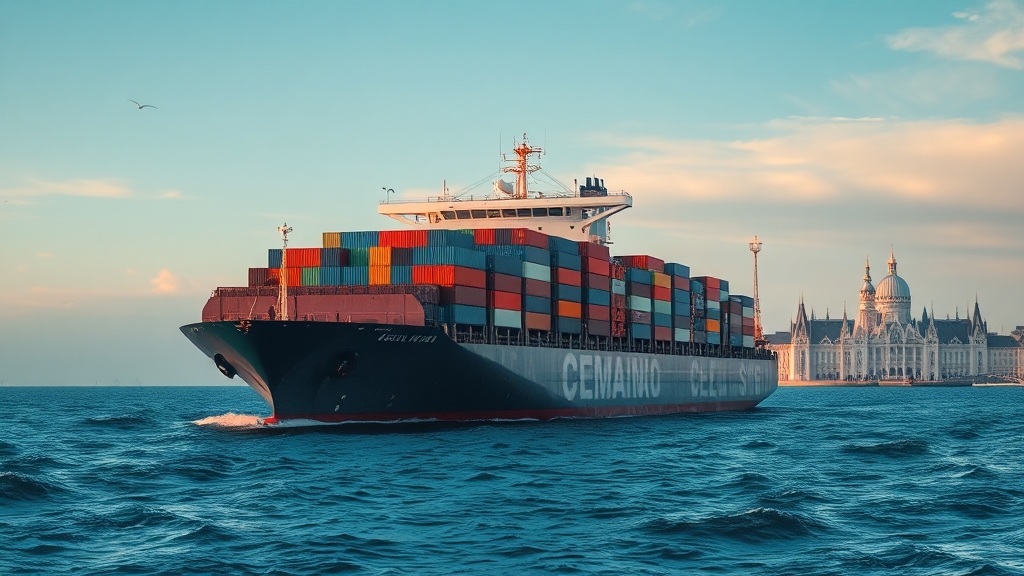
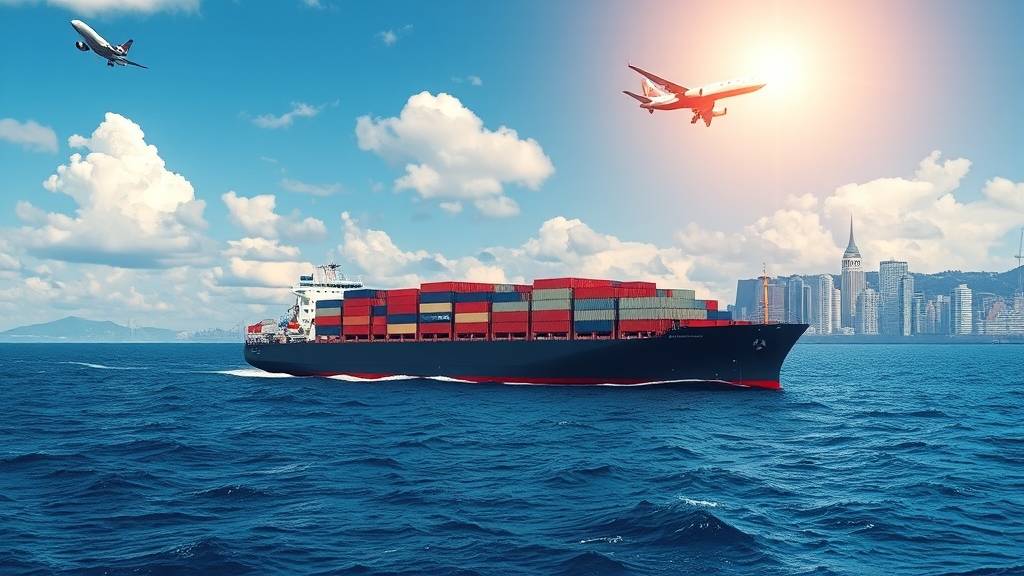





 Afrikaans
Afrikaans Shqip
Shqip አማርኛ
አማርኛ العربية
العربية Հայերեն
Հայերեն Azərbaycan dili
Azərbaycan dili Euskara
Euskara Беларуская мова
Беларуская мова বাংলা
বাংলা Bosanski
Bosanski Български
Български Català
Català Cebuano
Cebuano Chichewa
Chichewa 简体中文
简体中文 繁體中文
繁體中文 Corsu
Corsu Hrvatski
Hrvatski Čeština
Čeština Dansk
Dansk Nederlands
Nederlands English
English Esperanto
Esperanto Eesti
Eesti Filipino
Filipino Suomi
Suomi Français
Français Galego
Galego ქართული
ქართული Deutsch
Deutsch Ελληνικά
Ελληνικά Kreyol ayisyen
Kreyol ayisyen Harshen Hausa
Harshen Hausa Ōlelo Hawaiʻi
Ōlelo Hawaiʻi עִבְרִית
עִבְרִית हिन्दी
हिन्दी Hmong
Hmong Magyar
Magyar Íslenska
Íslenska Igbo
Igbo Bahasa Indonesia
Bahasa Indonesia Gaeilge
Gaeilge Italiano
Italiano 日本語
日本語 Basa Jawa
Basa Jawa ಕನ್ನಡ
ಕನ್ನಡ Қазақ тілі
Қазақ тілі ភាសាខ្មែរ
ភាសាខ្មែរ 한국어
한국어 كوردی
كوردی Кыргызча
Кыргызча ພາສາລາວ
ພາສາລາວ Latin
Latin Latviešu valoda
Latviešu valoda Lietuvių kalba
Lietuvių kalba Lëtzebuergesch
Lëtzebuergesch Македонски јазик
Македонски јазик Malagasy
Malagasy Bahasa Melayu
Bahasa Melayu മലയാളം
മലയാളം Maltese
Maltese Te Reo Māori
Te Reo Māori मराठी
मराठी Монгол
Монгол ဗမာစာ
ဗမာစာ नेपाली
नेपाली Norsk bokmål
Norsk bokmål پښتو
پښتو فارسی
فارسی Polski
Polski Português
Português ਪੰਜਾਬੀ
ਪੰਜਾਬੀ Română
Română Русский
Русский Samoan
Samoan Gàidhlig
Gàidhlig Српски језик
Српски језик Sesotho
Sesotho Shona
Shona سنڌي
سنڌي සිංහල
සිංහල Slovenčina
Slovenčina Slovenščina
Slovenščina Afsoomaali
Afsoomaali Español
Español Basa Sunda
Basa Sunda Kiswahili
Kiswahili Svenska
Svenska Тоҷикӣ
Тоҷикӣ தமிழ்
தமிழ் తెలుగు
తెలుగు ไทย
ไทย Türkçe
Türkçe Українська
Українська اردو
اردو O‘zbekcha
O‘zbekcha Tiếng Việt
Tiếng Việt Cymraeg
Cymraeg יידיש
יידיש Yorùbá
Yorùbá Zulu
Zulu